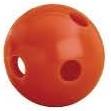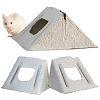Breadcrumb
- Home
- Office of the IACUC
- Policies, Guidelines and Informational Sheets
- Enrichment - Environmental Enrichment Program
Enrichment - Environmental Enrichment Program
Main navigation
- IACUC Contacts
- IACUC News
- IACUC AnShare ListServ
- Animal Protocol
-
Policies, Guidelines and Informational Sheets
- Anesthesia (Guideline)
- Analgesia - Buprenorphine ER (Informational Sheet)
- Analgesia (Guideline)
- Biologic Testing - Guidance and Procedures for Rodent Biologic Testing (Informational Sheet)
- Blood Collection (Guideline)
- Breeding - Rodent Breeding Colony Management (Policy)
- Enrichment - Canine Enrichment and Exercise Program
- Enrichment - Environmental Enrichment Program
- Euthanasia (Guideline)
- Euthanasia - Confirmation of Death (Policy)
- Euthanasia by OAR Personnel (Policy)
- Genotyping - Mouse Toe Clipping (Policy)
- Genotyping - Rodent Tail Snipping for Genotyping (Policy)
- Hazardous Agent Containment (biohazards, chemical hazards, & radioactive materials)
- Humane Intervention Points (Guideline)
- Media - Social Media (Policy)
- Media - Media Security (Policy)
- New Weanling Procedure for Labs (Guideline)
- Outbreak - OAR Pathogen Outbreak Control Plan
- Pain Recognition in Laboratory Animals (Informational Sheet)
- Principal Investigator Eligibility for Animal Protocols (Policy)
- Satellite Housing Expectactions (Policy)
- Social Housing of Species (Policy)
- Sterilization - Accepted Methods & Monitoring (IACUC Guideline)
- Substance Administration - Recommended Volumes (Informational Sheet)
- Substance Administration - Use of Drugs and Chemicals in Laboratory Animals (Guideline)
- Surgery - Non-Survival Surgery (Guideline)
- Surgery - Rodent (Mouse & Rat) Survival Surgery (Guideline)
- Surgery - Rodent Blood Loss (Informational Sheet)
- Surgery - USDA Covered Species Survival Surgery (Guideline)
- Surgery - Xenopus Oocyte Harvest (Guideline)
- Training Requirements for Personnel on an Animal Protocol (Policy)
- Transportation of Animals (Policy)
- Xenopus (Policy)
- Zebrafish (Policy)
- Personnel Training
- Educational Materials
- NIH Grant Information
- Occupational Hazards Associated with the Care and Use of Laboratory Animals
- DEA Information
- New Faculty/Recruitment
Purpose: “The primary aim of environmental enrichment is to enhance animal well-being by providing animals with sensory and motor stimulation, through structures and resources that facilitate the expression of species-typical behaviors and promote psychological well-being through physical exercise, manipulative activities, and cognitive challenges according to species-specific characteristics.” (The Guide for the Care and Use of Laboratory Animals, 8th ed.) These guidelines will describe the University of Iowa’s Office of Animal Resource’s standard enrichment practices for each species listed.
In addition to the enrichment program details here, please see details of social housing located here.
Rabbits
Each rabbit is offered:
- Vegetable (e.g. carrot, celery, etc.) weekly
Bio-Serv Bunny Block on a chain

- One toy (e.g. Dumbbell, Jingle Ball or SS Rattle) at all times



- Each rabbit is offered 2-3 small Shredded Wheat squares at each feeding
- Other food enrichment items may be offered such as timothy cubes or hay
Frogs
1 Bio-Serv Rodent Retreat per cage

Ferrets
1 Bio-Serv Ferret Ball per cage

- For breeding animals, the Ferret Ball will be replaced with a nest box and bedding
1 Bio-Serv Beefy Block on a Universal Hanging Chain per cage

Pigs
- One enrichment toy to be offered per cage at all times
- Examples: Bio-Serv Big Red Apple, 12” Best Ball or Jingle Ball


- Milk jugs with food treats inside but must be removed from enclosure by end of day
Mice, Rats
- Each mouse or rat is housed with enriched paper bedding
- If any mouse or rat is not housed with enriched paper bedding, alternative enrichment is provided (e.g. Nyla-bone, hut)

Guinea Pigs, Hamsters
Each guinea pig or hamster is housed with a retreat (e.g. Rodent Retreat Tunnel or Hut)


Sheep and Goats
- Sheep and goats are offered hay several times a week
- A mirror may be used if animals are singly housed
Fish
- Fish are offered brine shrimp daily
Pigeons
- Pigeons are offered grit in addition to their regular diet
- Additional enrichment is not routinely offered as it interferes with ongoing research
Last reviewed by the IACUC 11/8/2023